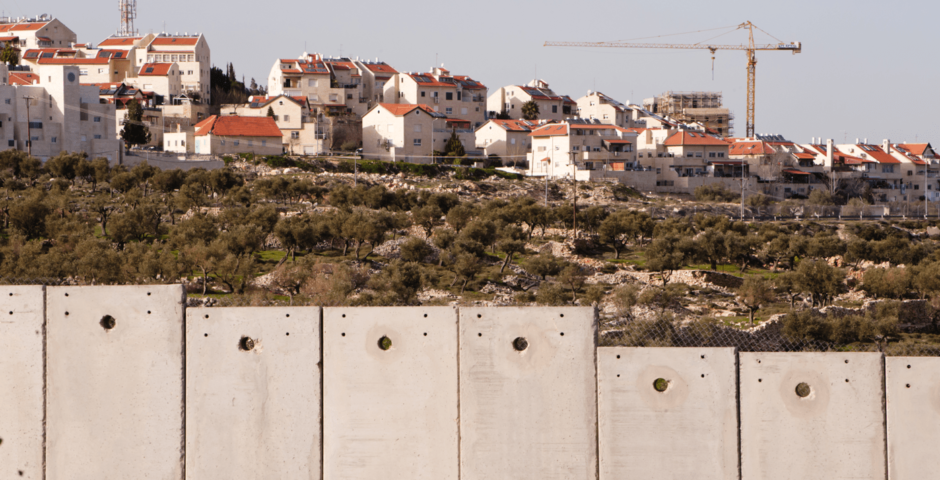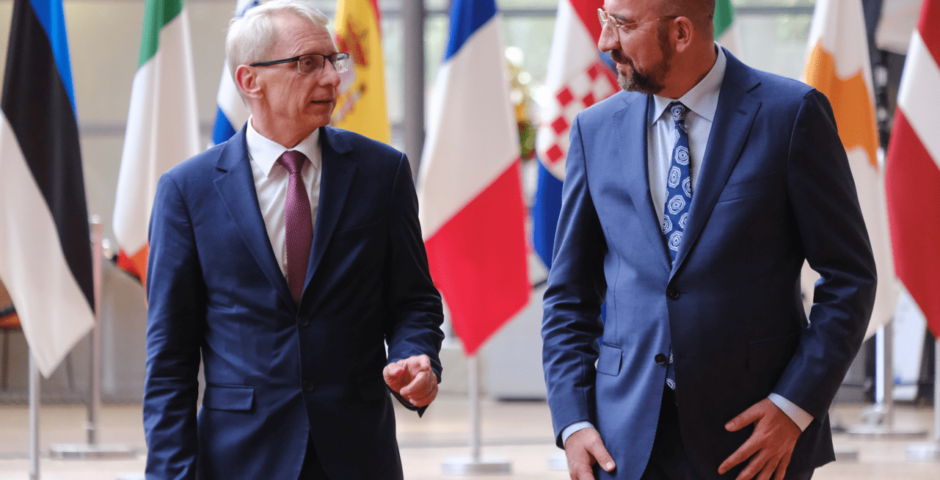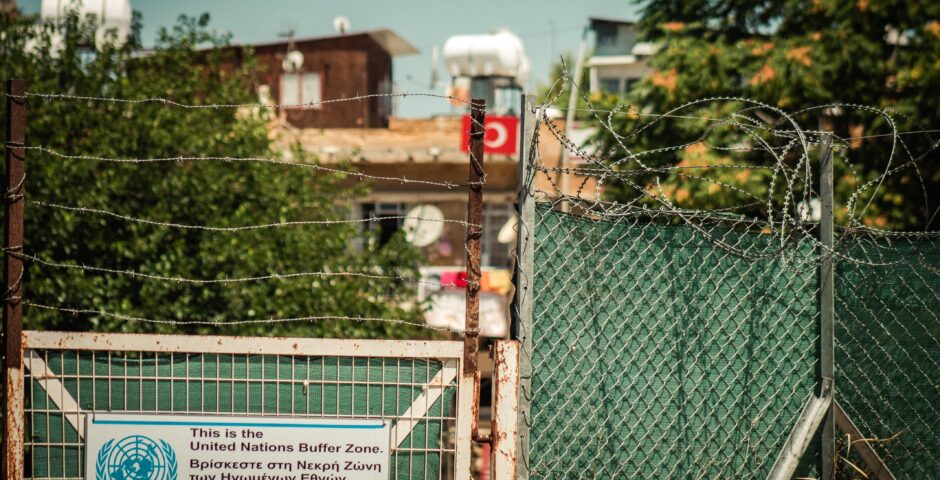Rethink European trade with illegal Israeli settlements

How European investment in Israel’s illegal settlement economy stands in the way of sustainable peace.
On October 7, 2023, the world was shocked by an attack by the terror organization Hamas on Israel, resulting in the killing, wounding, and/or kidnapping of hundreds of Israelis. A day later, Israel officially declared a state of war. Since then, the Gaza Strip in particular has been bombed frequently by Israel in retaliation for the October 7 attack. Criticism of this is increasing, especially as the bombings affect the two million inhabitants of Gaza, fifty percent of whom are children. Meanwhile, ground operations are also taking place in the Palestinian Territory. With Gaza being cut off from the outside world, communication systems down and shortages of water, food, electricity, and fuel, a humanitarian crisis has arisen.
Hamas’ attack on Israeli civilians is condemned by the EU, and in response to the war, the European Commission has decided to review financial aid to the Palestinians to prevent it from benefiting Hamas. Although an exception is made for emergency aid, this has a major impact on Palestinian civilians, who depend on European financial support for essential services such as health care. Some politicians, therefore, advocate the continuation of financial support precisely because only Hamas is guilty of the attack, and not the Palestinians.
However, despite expressions of support for Israel and condemnation of the attack by Hamas from several, mainly Western countries, Israel’s presence in the occupied territories and the construction of settlements in these territories are still considered illegal by these same countries. Moreover, the continued violence against Palestinians in the occupied territories, for example in the West Bank in the last month, increased public support for the Palestinian cause.
The war stirs up discussions about aid to the Palestinians and raises questions about European involvement in the problem. The construction of illegal settlements in occupied territories is a major cause of the outbreak of violence, and Europe’s economic ties with Israel have contributed to the construction and expansion of these settlements. Tolerating trade with illegal settlements fuels confrontation, while the international community has previously advocated for giving up Israeli control of the occupied territories to make a stable peace.
That the actions of Hamas as a terror organization are condemned is certain, but the organization is not the official administrator of Gaza. Although Hamas may have de facto power, the Palestinian Authority is the official administrator of the territory. While sentiments about resistance to the Israeli occupation may be shared, Palestinian citizens are not as a whole responsible for Hamas’ violent actions. That said, many Palestinians are also angered by Israeli illegal settlements and growing violence against Palestinians. Therefore, to achieve a lasting peace, one of the things that will have to be looked at is the illegal Israeli settlements in the Palestinian Territories and how this is blocking the peace process. Among other things, Europe can examine its economic ties with the illegal settlements. You can read why and how the EU can review its economic relationship with the settlements to contribute to lasting peace in this article, part one of a diptych.
Controversies surrounding the Israeli settlement policy
Although the outbreak of war between Israel and Hamas came as a surprise to many, it is a major escalation of a long-running conflict that has seen many outbreaks of violence over the years. Indeed, the Israeli occupation has caused international controversy and political tension for decades. Winning the Six-Day War, Israel captured territories from its Arab neighbors, but these conquests were not recognized by much of the international community. The annexations go against the Geneva Conventions on international humanitarian law at times of armed conflict and are an obstacle to establishing lasting peace in the region.
Settlements appeared in the occupied territories. Today, these can still be found in parts of the West Bank, East Jerusalem, and the Golan Heights. In the West Bank, in particular, Israel is still actively expanding settlements. Besides the fact that the settlements are illegal in themselves, human rights organizations such as Amnesty International report that the settlements also contribute to land expropriation, exploitation of natural resources, forced relocation, and discrimination against the local population. These issues increase Palestinians’ frustration and stand in the way of a lasting peace.
Despite violations of international human rights and international humanitarian law of war, businesses continue to operate in illegal settlements. Israel has strong international trade relationships that, without adequate regulation, contribute to the perpetuation of Israeli settlement policy. For this reason, in 2016, the United Nations (UN) called on member states to follow the 2011 Guiding Principles on Business and Human Rights. The European Union (EU) also takes a clear position on the illegality of Israeli settlements in the occupied territories and has taken some steps since the conclusion of the trade treaty with Israel in 2000 to bring its trade relationship with Israel in line with this.
EU trade policy: politics of differentiation and gaps in policy
The EU has a responsibility to put its money where its mouth is and reframe its trade relations with Israel. Not only because condemning settlements does not in itself demonstrate political decisiveness, but also because European trade has a major impact on the Israeli economy. The EU accounts for 28.8% of Israeli goods trade, making it the country’s largest trading partner. The economic impact of European trade with Israel is, thus, enormous, and without clear guidelines for trade with Israel, the EU risks contributing to the maintenance of illegal settlements.
As a solution to maintaining trade relations with Israel while simultaneously condemning the illegal settlements, the EU approaches the issue based on differentiation. This means making a clear distinction between trade with Israel and trade with the illegal settlements. This differentiation is a first step toward European trade with Israel without (indirectly) supporting colonialism. In addition, differentiation can serve as a means of exerting political pressure. If Europe uses differentiation appropriately, Israel should accept the EU’s differentiation terms to maintain its international relations with Europe.
Under the Israel-EU trade treaty, settlements have been excluded from the benefits of the treaty since 2005. Since 2012, once every few years, the EU has distributed to member states a list of locations excluded from the trade treaty. Furthermore, the EU has introduced trade policies on the labeling of products from Israeli settlements. The European Court of Justice ruled in 2019 that member states are obliged to indicate if a product comes from Israeli-occupied territories.
In practice, however, enforcement of this is inadequate. There is a lack of monitoring of trade with settlements, which still allows Israeli exporters to unlawfully label settlement products as Israeli to circumvent the exclusion from the trade treaty. Moreover, the trade labeling policy puts the onus on consumers, while still allowing companies to trade with the illegal settlements. Because the policy focuses on Israeli exports, it also provides no guidelines for importing goods and services to support settlement growth.
General ban on trade with illegal settlements
So the EU’s attempts to shape trade with Israel are still falling short. The current directives are not yet working due to poor oversight. In addition, it could be argued that any trade with the settlements should be banned by the EU, as recently advocated by Oxfam Novib, through a petition. Indeed, trading with the settlements outside the advantageous trade terms of the treaty still supports illegal settlements and is not in line with the Guiding Principles of Business and Human Rights. Trading with settlements violates international law, according to legal scholar Tom Moerenhout, because trade does not comply with the duty not to cooperate with such unlawful situations. A bill was introduced in Ireland in 2018 to prohibit and criminalize trade and economic support to illegal settlements in occupied territories, but it was blocked. The reason? The proposal would be “unconstitutional” because trade is an EU competence. This incident also calls for EU action to ban trade with illegal settlements.
So far, the EU is refraining from imposing a trade ban with the settlements. There have been several citizens’ initiatives calling for this in recent years, but the European Commission (EC) repeatedly denied its legal authority to impose such a ban. After the EC denied registration of a European citizens’ initiative to ban trade with illegal settlements in 2019, it was nevertheless approved in 2021. A decision by the European Court of Justice forced the EC to recognize that it did have the jurisdiction to impose a blanket ban on trade with illegal settlements. Such a measure would not be considered a sanction, but compliance with European and international law. Within the collection period from February 20, 2022, to February 20, 2023, a total of 277,717 signatures were collected, falling short of the minimum number of statements of support of one million European citizens.
Yet there seems to be hope on the horizon. On April 26, 2023, the citizens’ initiative was considered by the Petitions Committee (PETI) of the European Parliament (EP). Here it was decided that the citizens’ initiative should be considered by the EC. In addition, the International Trade Committee (INTA) was asked to examine the possibilities for a trade ban on illegal settlements. From this followed the INTA’s proposal on June 27, 2023, to exchange ideas with the EC on such a trade ban. It is a long but necessary process if the EU is to bring its trade policy in line with international law.
Momentum for European policy at a time of political turmoil
All this is taking place during a period of political instability in Israel. Between 2018 and 2022, there have been no fewer than five early elections. Of these, the first two elections saw coalition formation cease and the subsequent two elections saw the cabinet fall before the current cabinet took office in December 2022.
Led by Prime Minister Netanyahu, the current government passed a reform law in July that curbs the power of the Supreme Court. The new law makes it more difficult to declare the prime minister ‘unfit’, partially removing the judiciary’s control over the state. Many see the developments as a threat to democracy. Moreover, human rights activists fear the reforms will contribute to the expansion of Israeli settlements. The decision rocked the country and triggered many (inter)national reactions and protests.
In light of current developments, the urgency to address this problem is high. The escalation of the Israel-Palestine conflict in recent years was already bringing momentum, and now that a state of war has been declared, the consequences of ignoring the underlying issues have become clear at a stroke.
So far, however, the EU has failed to adequately address the problem of economic involvement. The EC’s initial refusal to register the citizens’ initiative in 2019 shows that the political and economic relationship with Israel has for years been a sensitive issue that member states prefer to avoid. However, the EU has a responsibility to follow international law and prevent trade policies from leaving room for recognizing and supporting illegal settlements.
Next steps for Europe
The need for further (re)framing of European trade with Israel concerning the illegal settlements is, thus, greater than ever. The economic relations between Europe and Israeli settlements are very complex, and the current trade policy does not yet provide sufficient guidelines for companies operating in the settlements. To ensure that European trade policy does not leave room for the violation of human rights and humanitarian law of war, the EU will have to explore the possibilities of a trade ban.
Although it has been unsuccessful so far, the European Citizens’ Initiative’s proposal to establish a blanket ban on trade with illegal settlements offers the possibility of fulfilling these responsibilities. Following the European Citizens’ Initiative, such a ban would not be a sanction on Israel, but a general ban on trade with settlements that are not recognized by international law. So the EC will have to get to work on the trade ban. It should also examine how companies and investors who violate such a ban can be held accountable for their actions by local and international courts.
So in addition to the fact that the EC will need to further explore options for a trade ban, there is much to be gained in terms of monitoring. In the context of the current war between Israel and Hamas, this may seem irrelevant, but in the long run, clear guidelines are needed if a lasting peace is to be made. In addition, framing trade policy extends beyond the relationship between Europe and Israel. It serves as an example to approach relations with other illegal settlements as well to hopefully prevent similar violent escalations elsewhere.
There are opportunities for collaboration between the EU and civil society, about which more will be told in the second part of this series. Monitoring companies and investors involved in illegal settlements can support European policy formation and enforcement, including the trade ban proposal. It is time for Europe to take responsibility and act when it comes to compliance with international laws and regulations. Hundreds of thousands of European citizens have already spoken out for change. All that remains for the EU to do is to follow their lead.
Luna Verbaas is an undergraduate student of Liberal Arts and Sciences at Utrecht University with a specialisation in International Relations in Historical Perspective and Philosophy, Politics and Society.
Image: Shutterstock




